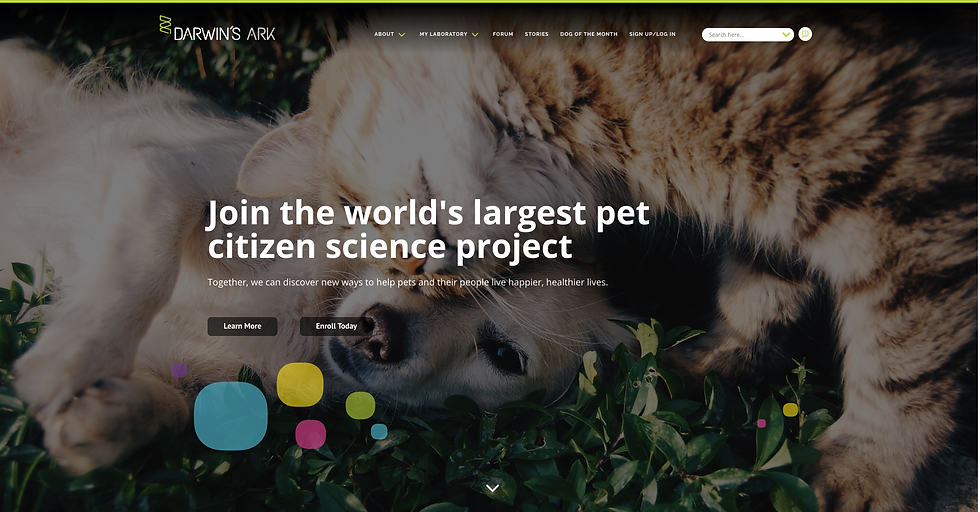Decoding Dog DNA
- tumblepodcast
- Feb 7, 2020
- 2 min read
Updated: Feb 25, 2023
EDUCATION RESOURCES:
NGSS Standards:
LS
Why do dogs look and act so different from each other? Listener Finley has two Chihuahuas named Peanut and Maggie, and she wants to know why they have different head shapes. She thinks it might have something to do with their DNA. It turns out scientists are studying what makes dogs the way they are, with the help of gigantic books of doggie DNA. Geneticist Jessica Hekman takes us on a journey through the history of dog breeding and into the cutting-edge science that’s helping us understand what makes our pups so special. Come explore genetics through dog breeds!
MAGGIE & PEANUT
Meet the dogs who inspired our episode!
Here's Finley with Maggie, the deer-headed Chihuahua.

And here's Grey, Finley's brother, with Peanut! Peanut is apple-headed. Can you see the difference?

Photos courtesy of Finley's mom Stacey, and shared with her permission.
DARWIN'S ARK
Do you have a dog or another awesome type of pet? Want to help scientists discover the secrets behind their behavior and personality? Check out Darwin's Ark!
From the website:
Darwins’ Ark is a revolutionary, collaborative scientific initiative. We are bringing together the best minds in genetics, medicine and behavior – including pet owners, who know their pets better than any scientist ever could!
Through this partnership of citizen science, cutting edge technology and academic expertise, we’re discovering a far richer and more complete understanding of our world.
Teams from the Broad Institute of Harvard and MIT, the University of Massachusetts Medical School, and the International Association of Animal Behavior Consultants are working with pet owners to understand the interaction of genetics and environment, and work toward bettering the lives of people and pets.
As Jessica mentions in the episode, it's free to sign up and answer questions about your pet, in a series of surveys.
The lab eventually hopes to provide DNA testing kits to participants for free. When you register your pet, you'll be put on the waitlist. But if you want to get a DNA test now and help directly support the research, you can make a donation.
Here's a great article for students involving the project: What we can - and can't - learn from our pets' DNA
Jessica wrote this article about Darwin's Ark for a dog magazine: Hunting for the genes that influence dog behavior
DOG GENETICS
In the episode, Jessica mentions that black coat color in wolfs is a mutation from dogs. Here's the article that explains how that happened: New World Wolves and Coyotes Owe Debt to Dogs
Meet another lab (not the dog but the laboratory!) that's also using dog DNA to understand diseases.
BREEDING & HEREDITY
Much of our episode deals with how traits are passed down through artificial selection to create dog breeds. There's a fascinating and famous experiment on foxes that shows how domestication and breeding works. It can help us understand how dogs came to be our animal BFFs.
There's a great episode of Radiolab about the tame fox experiment, too! (Appropriate for older kids)
Want to learn more from our interview with Jessica Hekman? Support us on Patreon for only $1/month, and get access to ad-free episodes and bonus interviews with every featured scientist. Yay!









